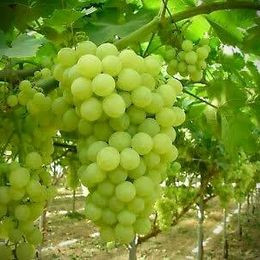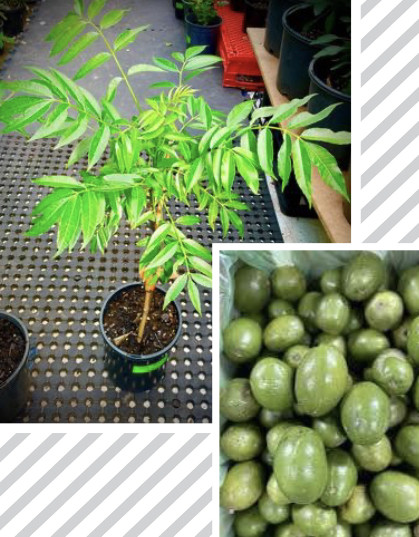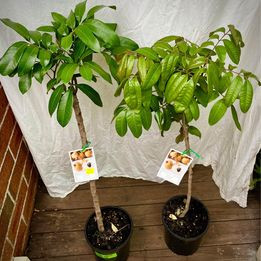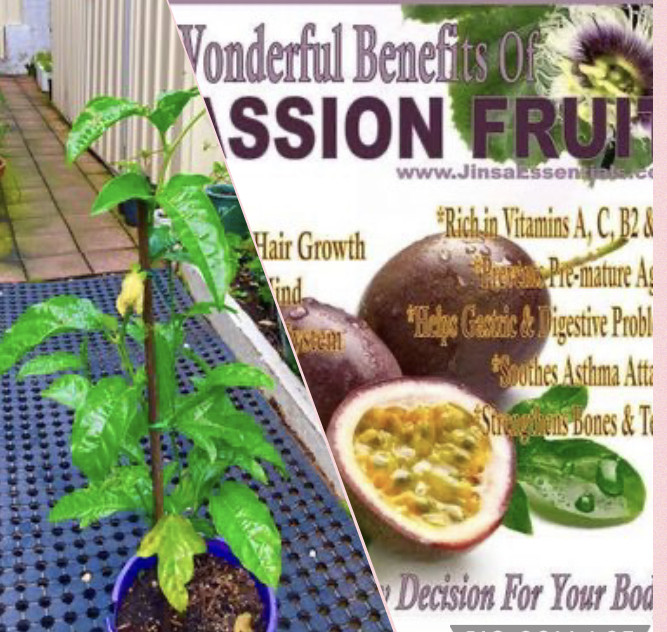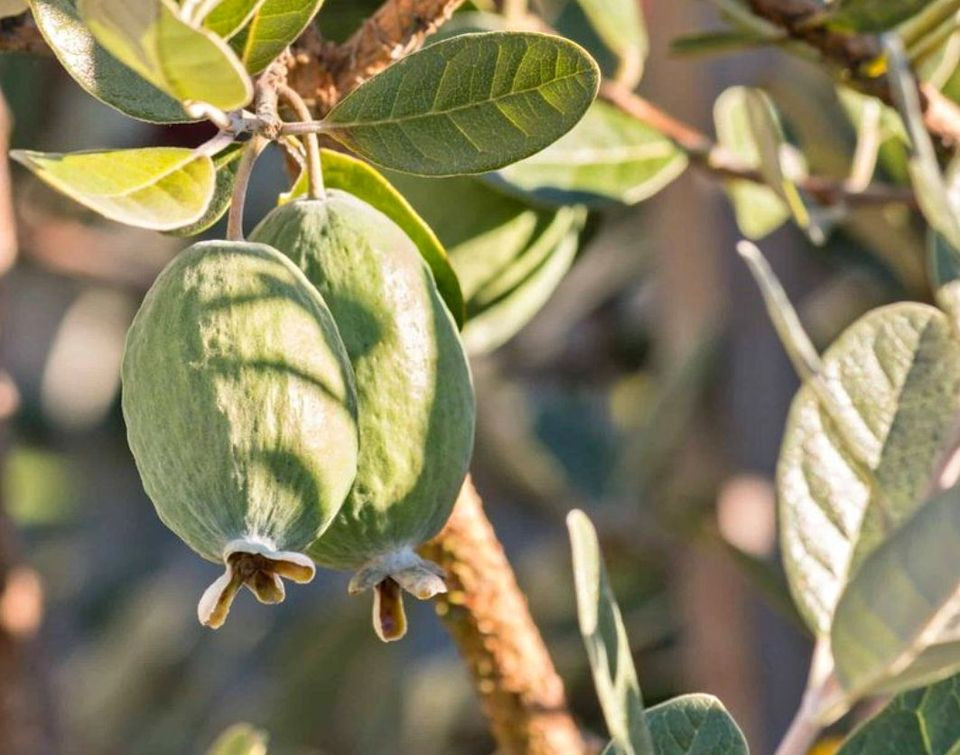
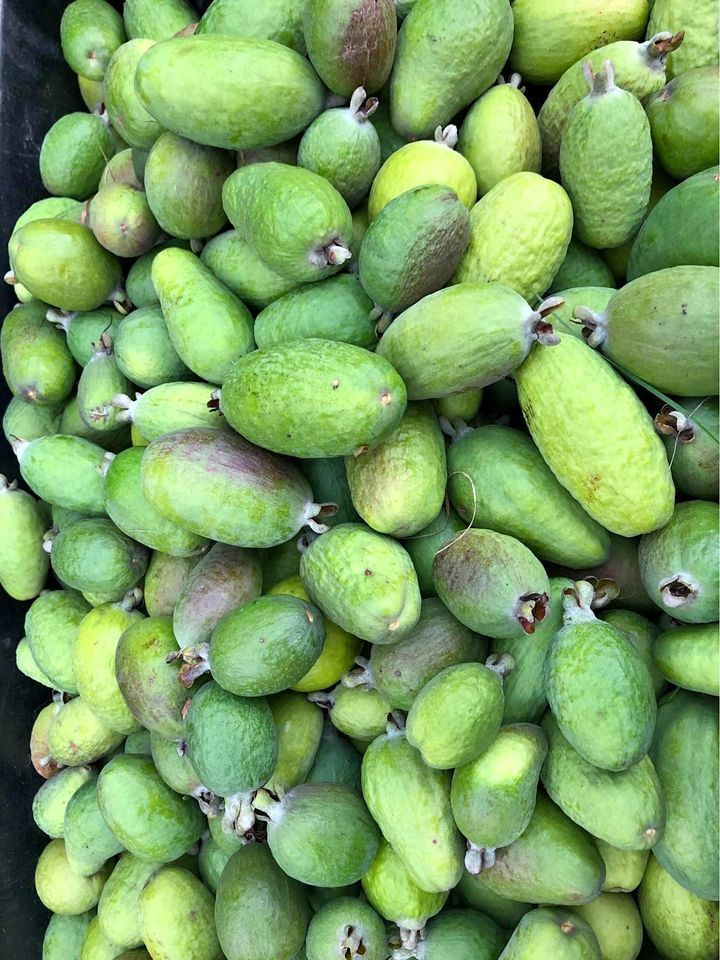
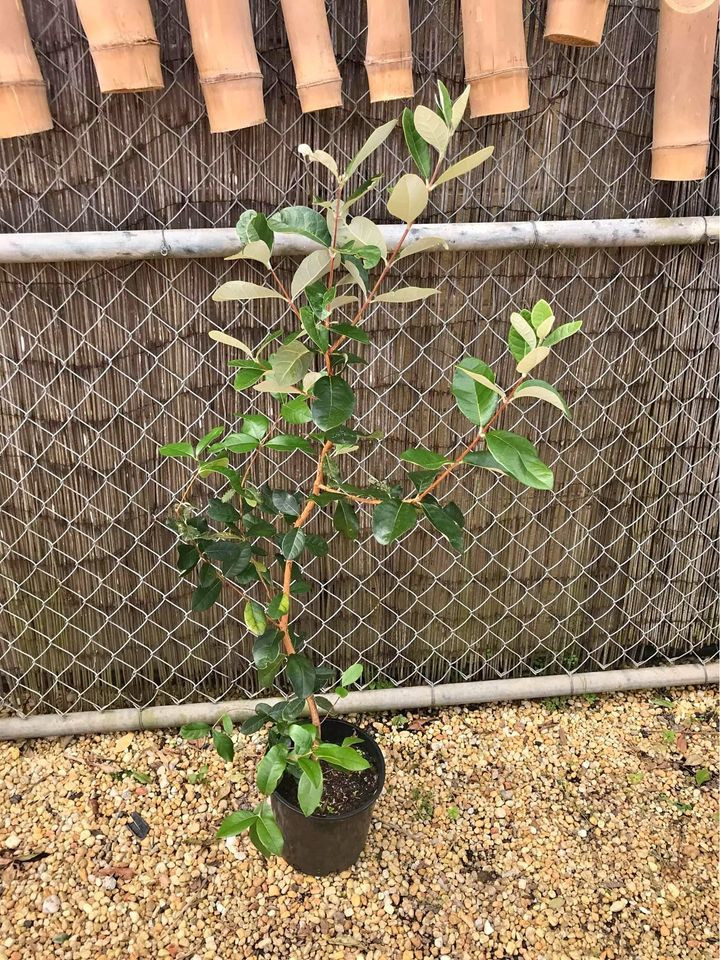
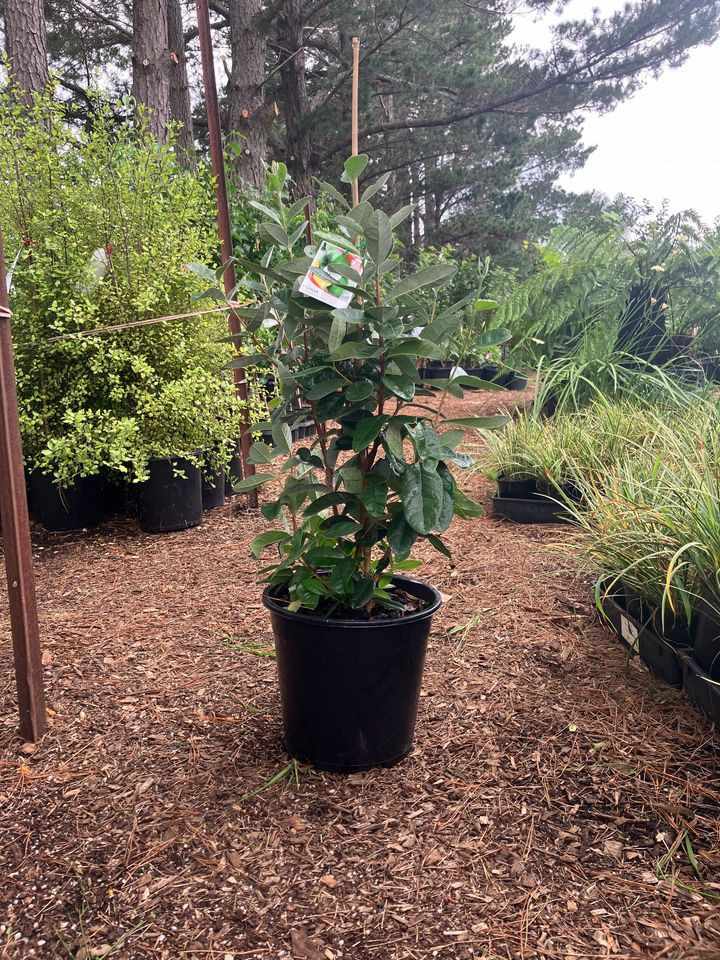
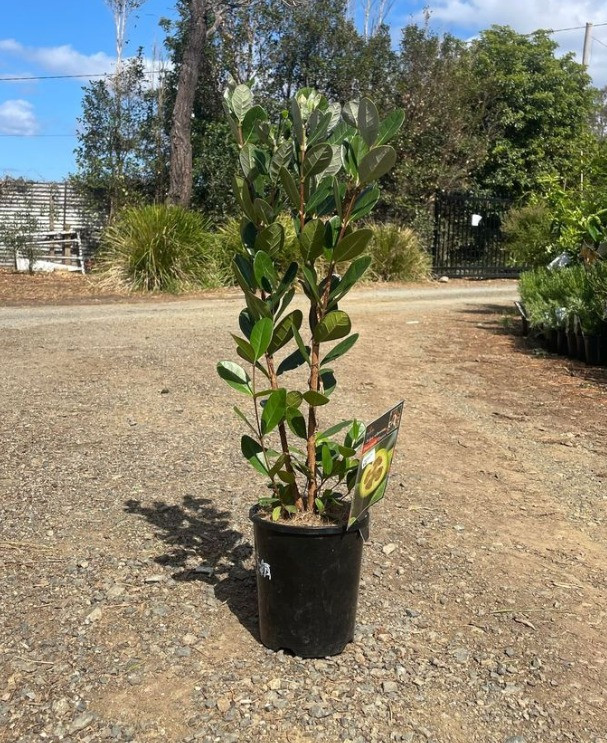
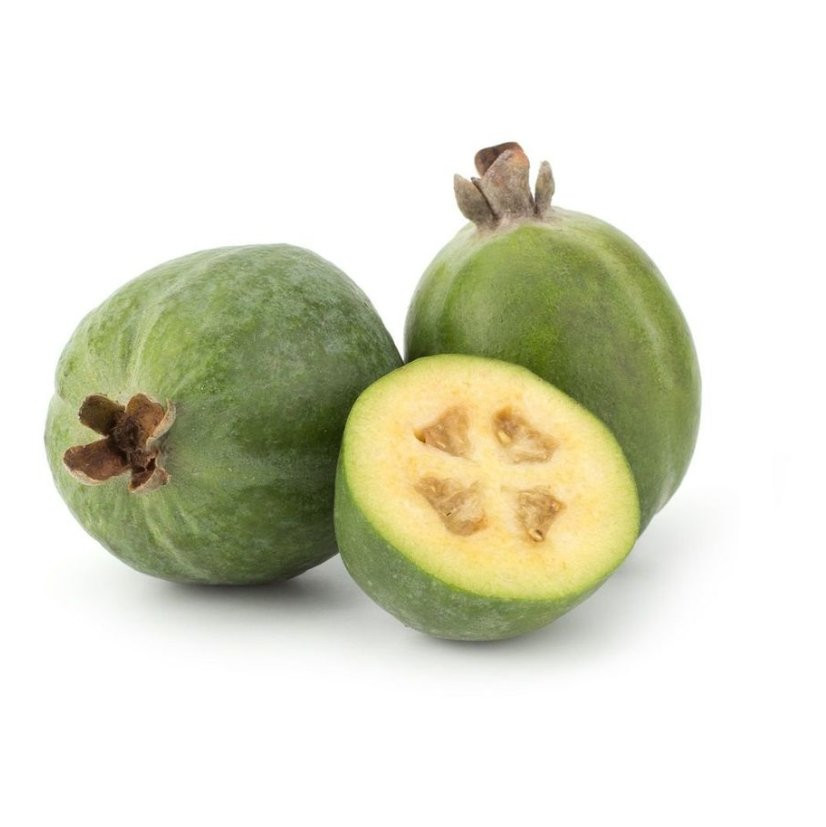
Feijoa
Category : Fantastic Fruiting Plants
Feijoa, also known as pineapple guava or guavasteen, is a delightful fruit that can be grown in home gardens for fresh, delicious produce. These small green fruits are known for their unique flavor, a blend of pineapple, guava, and mint, and their versatility in various culinary uses. Feijoas don't travel well, making them an excellent choice for home gardeners who want to enjoy this tropical treat straight from the garden.
Why Grow Feijoa?
Feijoa offers several benefits that make it a fantastic addition to any garden:
- Flavor: The complex taste of feijoa is a rare find in stores, providing a unique culinary experience.
- Freshness: Harvesting feijoa from your garden ensures you enjoy the freshest fruit possible.
- Ornamental Value: Feijoa plants are not only productive but also add beauty to your garden with their attractive flowers and evergreen foliage.
- Ease of Growth: Feijoa is relatively easy to grow and requires minimal maintenance once established.
How to Grow Feijoa
Here are some essential tips for successfully growing feijoa in your garden:
1. Selecting the Right Location
- Sunlight: Feijoa plants thrive in full sun but can tolerate partial shade. Aim for at least 6-8 hours of sunlight per day.
- Soil: Plant feijoa in well-draining soil enriched with organic matter. They prefer slightly acidic to neutral soil (pH 5.5-7.0).
2. Planting Feijoa
- Timing: The best time to plant feijoa is in the spring after the last frost or in the fall in warmer climates.
- Spacing: Space the plants about 10-15 feet apart to allow for their mature size and good air circulation.
3. Watering
- Regular Watering: Keep the soil consistently moist, especially during the first few years. Mature plants are somewhat drought-tolerant but benefit from regular watering.
- Mulching: Apply mulch around the base of the plants to retain soil moisture and reduce weed competition.
4. Fertilizing
- Balanced Fertilizer: Use a balanced fertilizer (such as 10-10-10) in early spring and mid-summer to promote healthy growth and fruit production.
- Organic Options: Consider using organic compost or well-rotted manure to nourish the plants naturally.
5. Pruning and Maintenance
- Pruning: Prune feijoa plants after the fruiting season to remove dead or weak branches and to shape the plant. This encourages better light penetration and air circulation.
- Pest and Disease Control: Feijoa is relatively pest-resistant but watch for common garden pests and treat them promptly if needed.
Harvesting and Enjoying Feijoa
Feijoa fruits typically ripen in late fall. They are ready to harvest when they naturally drop from the plant, or you can gently twist them off if they come off easily. Enjoy feijoas fresh, sliced in salads, or used in desserts, jams, and beverages.
Conclusion
Feijoa is an excellent fruit for home gardeners, offering a unique flavor and freshness that is hard to find in stores. With its minimal maintenance requirements and attractive appearance, feijoa can enhance your garden while providing delicious fruit. Follow these guidelines to cultivate and enjoy your own feijoa harvest, making your garden a source of delightful, tropical flavors.
Price : $55 $48
In Stock








